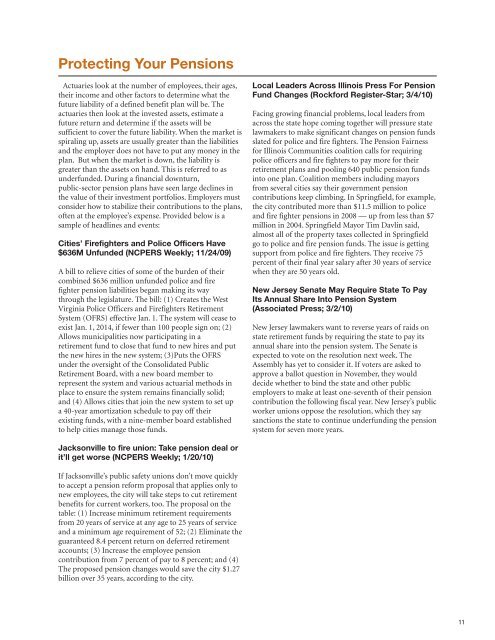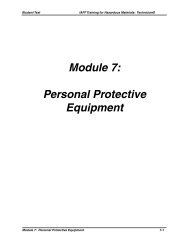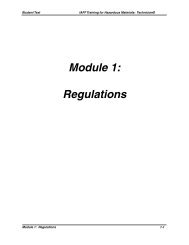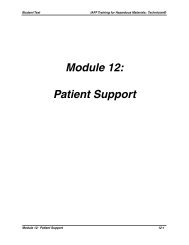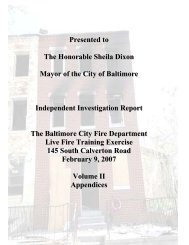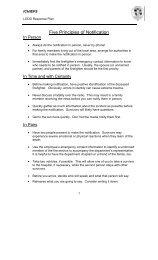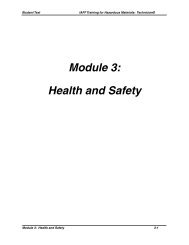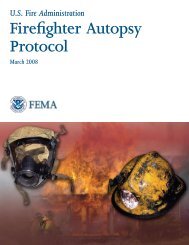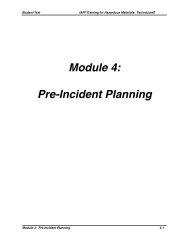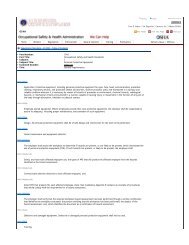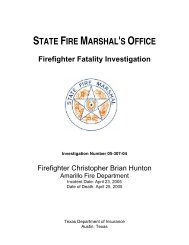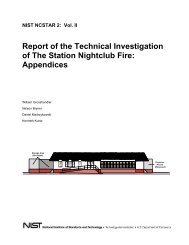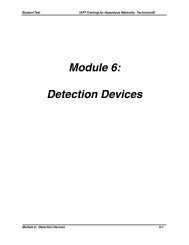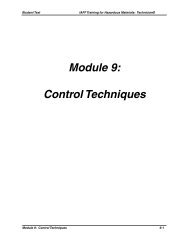Pension Handbook - International Association of Fire Fighters
Pension Handbook - International Association of Fire Fighters
Pension Handbook - International Association of Fire Fighters
Create successful ePaper yourself
Turn your PDF publications into a flip-book with our unique Google optimized e-Paper software.
Protecting Your <strong>Pension</strong>s<br />
Actuaries look at the number <strong>of</strong> employees, their ages,<br />
their income and other factors to determine what the<br />
future liability <strong>of</strong> a defined benefit plan will be. The<br />
actuaries then look at the invested assets, estimate a<br />
future return and determine if the assets will be<br />
sufficient to cover the future liability. When the market is<br />
spiraling up, assets are usually greater than the liabilities<br />
and the employer does not have to put any money in the<br />
plan. But when the market is down, the liability is<br />
greater than the assets on hand. This is referred to as<br />
underfunded. During a financial downturn,<br />
public-sector pension plans have seen large declines in<br />
the value <strong>of</strong> their investment portfolios. Employers must<br />
consider how to stabilize their contributions to the plans,<br />
<strong>of</strong>ten at the employee’s expense. Provided below is a<br />
sample <strong>of</strong> headlines and events:<br />
Cities’ <strong>Fire</strong>fighters and Police Officers Have<br />
$636M Unfunded (NCPERS Weekly; 11/24/09)<br />
A bill to relieve cities <strong>of</strong> some <strong>of</strong> the burden <strong>of</strong> their<br />
combined $636 million unfunded police and fire<br />
fighter pension liabilities began making its way<br />
through the legislature. The bill: (1) Creates the West<br />
Virginia Police Officers and <strong>Fire</strong>fighters Retirement<br />
System (OFRS) effective Jan. 1. The system will cease to<br />
exist Jan. 1, 2014, if fewer than 100 people sign on; (2)<br />
Allows municipalities now participating in a<br />
retirement fund to close that fund to new hires and put<br />
the new hires in the new system; (3)Puts the OFRS<br />
under the oversight <strong>of</strong> the Consolidated Public<br />
Retirement Board, with a new board member to<br />
represent the system and various actuarial methods in<br />
place to ensure the system remains financially solid;<br />
and (4) Allows cities that join the new system to set up<br />
a 40-year amortization schedule to pay <strong>of</strong>f their<br />
existing funds, with a nine-member board established<br />
to help cities manage those funds.<br />
Local Leaders Across Illinois Press For <strong>Pension</strong><br />
Fund Changes (Rockford Register-Star; 3/4/10)<br />
Facing growing financial problems, local leaders from<br />
across the state hope coming together will pressure state<br />
lawmakers to make significant changes on pension funds<br />
slated for police and fire fighters. The <strong>Pension</strong> Fairness<br />
for Illinois Communities coalition calls for requiring<br />
police <strong>of</strong>ficers and fire fighters to pay more for their<br />
retirement plans and pooling 640 public pension funds<br />
into one plan. Coalition members including mayors<br />
from several cities say their government pension<br />
contributions keep climbing. In Springfield, for example,<br />
the city contributed more than $11.5 million to police<br />
and fire fighter pensions in 2008 — up from less than $7<br />
million in 2004. Springfield Mayor Tim Davlin said,<br />
almost all <strong>of</strong> the property taxes collected in Springfield<br />
go to police and fire pension funds. The issue is getting<br />
support from police and fire fighters. They receive 75<br />
percent <strong>of</strong> their final year salary after 30 years <strong>of</strong> service<br />
when they are 50 years old.<br />
New Jersey Senate May Require State To Pay<br />
Its Annual Share Into <strong>Pension</strong> System<br />
(Associated Press; 3/2/10)<br />
New Jersey lawmakers want to reverse years <strong>of</strong> raids on<br />
state retirement funds by requiring the state to pay its<br />
annual share into the pension system. The Senate is<br />
expected to vote on the resolution next week. The<br />
Assembly has yet to consider it. If voters are asked to<br />
approve a ballot question in November, they would<br />
decide whether to bind the state and other public<br />
employers to make at least one-seventh <strong>of</strong> their pension<br />
contribution the following fiscal year. New Jersey’s public<br />
worker unions oppose the resolution, which they say<br />
sanctions the state to continue underfunding the pension<br />
system for seven more years.<br />
Jacksonville to fire union: Take pension deal or<br />
it’ll get worse (NCPERS Weekly; 1/20/10)<br />
If Jacksonville’s public safety unions don’t move quickly<br />
to accept a pension reform proposal that applies only to<br />
new employees, the city will take steps to cut retirement<br />
benefits for current workers, too. The proposal on the<br />
table: (1) Increase minimum retirement requirements<br />
from 20 years <strong>of</strong> service at any age to 25 years <strong>of</strong> service<br />
and a minimum age requirement <strong>of</strong> 52; (2) Eliminate the<br />
guaranteed 8.4 percent return on deferred retirement<br />
accounts; (3) Increase the employee pension<br />
contribution from 7 percent <strong>of</strong> pay to 8 percent; and (4)<br />
The proposed pension changes would save the city $1.27<br />
billion over 35 years, according to the city.<br />
11


